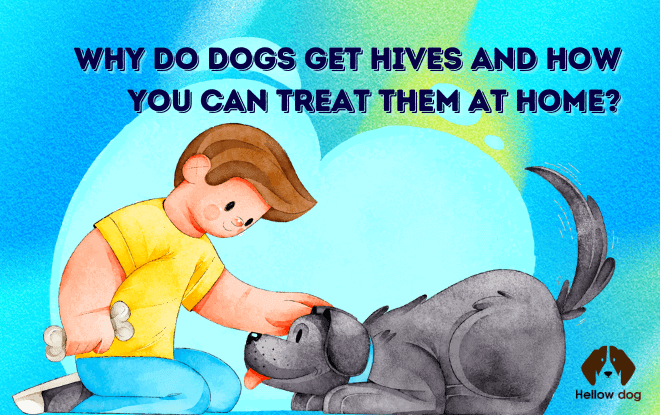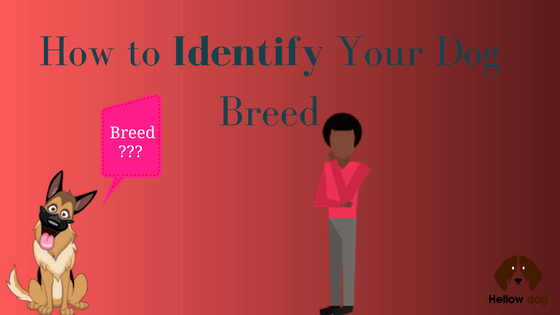One of the most common symptoms of allergy in dogs is hives. Hives are raised, with itchy bumps on the skin. They can be red, white, or purple in color. They can occur anywhere on the body but are mainly found on the face, ears, and chest. If your dog is suddenly scratching or licking himself more than usual, and you notice that he has developed red, raised welts on his skin, it’s likely that he’s experiencing an allergic reaction – most likely hives. In this article, we will discuss what causes dog hives and how to treat them at home using natural remedies.
What Are The Common Symptoms?
The common symptoms are itchy bumps that are red, white, or purple in color. They can also be found on the face, ears, and chest.
What are Hives and What Causes them in Dogs?
Dog hives are welts that appear on a dog’s skin. They are usually red and raised, and can be itchy and uncomfortable. Hives can be caused by a number of things, including allergies, stress, and infections. In most cases, hives will go away on their own. However, if your dog is experiencing severe discomfort, there are certain things you can do to help.
Dog hives are typically treated with antihistamines. You can give your dog over-the-counter drugs such as Benadryl or consult your veterinarian for prescription medication. You can also try using a cool compress or giving your dog an oatmeal bath to soothe the itchiness.

How Do You Know if Your Dog Has Hives and How Bad They Are?
Hives are raised, itchy welts that can appear on any part of your dog’s body. They are often the result of an allergic reaction and can be quite painful. If you think your dog may have hives, it is important to take them to the vet for a diagnosis. The vet will be able to determine how severe the hives are and whether they are caused by an allergy or another condition.
How Can You Treat Them at Home Without a Trip to The Vet Clinic?
Dog hives are a skin condition that is identified by raised, itchy swellings. They can be caused by a number of things such as allergies and stress, including insect bites. Dog hives can be very uncomfortable for your pet, and they may even cause him to lose his hair. If you think your dog has hives, consult with your vet.
However, there are a few home remedies that can help to soothe your dog’s skin and relieve his itchiness. For example, you can try giving him an oatmeal bath or applying a cool compress to the affected area. You can also try giving him antihistamines if his hives are caused by allergies. This is how to treat dog hives at home.

When Should You Seek Veterinary Help for Your Dog’s Hive?
Dog hives are usually the result of an allergic reaction to something in your dog’s environment, such as pollen, dust mites, or certain foods. While hives are not typically serious, they can be very uncomfortable for your dog. If you notice that your dog has hives, you may be tempted to treat the problem at home with over-the-counter medications or natural remedies. Dog hives can sometimes indicate a more serious underlying health condition, such as an infection or a reaction to a vaccine.
If your dog is displaying other symptoms along with the hives, such as vomiting or difficulty breathing, you should take them to the vet immediately. In addition, if the hives do not improve after 24 hours of treatment, it is also important to seek professional help. Your vet will be able to determine the cause of the hives and prescribe the appropriate treatment.
What are Some Potential Complications from Untreated Hives in Dogs?
Hives, or urticaria, is a condition that causes your dog’s skin to break out in welts. It can be a reaction to anything from an allergic reaction to environmental triggers like pollen or changes in temperature. While hives are not usually serious, they can be very uncomfortable for your dog. If left untreated, hives can lead to secondary infections, hair loss, and even difficulty breathing. If you think your dog has hives, it’s important to seek treatment from a veterinarian as soon as possible.

How Long Will the Hives Last and Be Back to Normal Again?
Dog hives can be a frustrating and even dangerous condition for our furry friends. If your dog has come down with hives, you may be wondering how long the hives will last and when you can expect your pup to be back to its normal self again. Dog hives are skin conditions that can be caused by allergies or other irritants. Hives appear as raised, red small bumps on the skin. They are itchy and not comfortable for the pup.
In severe cases, dog hives can lead to difficulty breathing. While most cases of dog hives are not life-threatening, it is still important to seek medical attention if your dog is having any respiratory distress. Thankfully, there are many things you can do at home to help soothe your dog’s hives.
One of the most effective dog hives remedies include:
– Applying a cool compress to the affected area. This will help to reduce swelling and itchiness.
– Give your dog an antihistamine prescribed by your veterinarian.
– bathe your dog using a hypoallergenic shampoo formulated for dogs with sensitive skin. This will help to remove any irritants from the coat and soothe the skin.
– Avoid any known triggers for your dog’s hives. Common triggers include certain foods, pollen, dust, mold, and grasses.
With proper treatment, most dogs will experience relief from their hives within a few days. However, some dogs may require long-term treatment if they suffer from chronic hives or have a more severe reaction. If you are concerned about your dog’s hives, be sure to consult with your veterinarian for more information and advice on how to best care for your pup.
Conclusion
In this post, we discussed how dogs can get hives and some home remedies to treat them. If your dog is experiencing hives, we recommend you take them to the vet as soon as possible.
However, if you want to try treating them at home first, there are a few things you can do. The most important thing is to not panic and give your dog plenty of love and attention. Try one of the home remedies we listed and see if it helps. If not, or if the hives seem to be getting worse, please make an appointment with your veterinarian right away.







